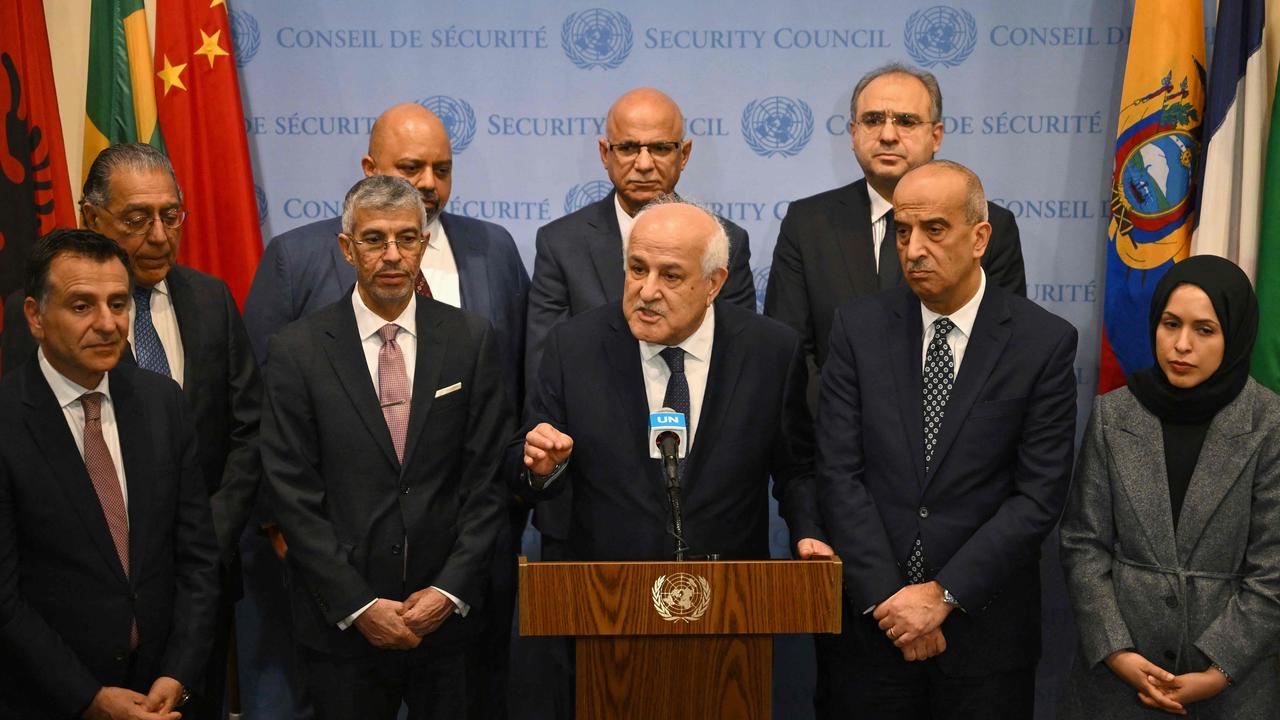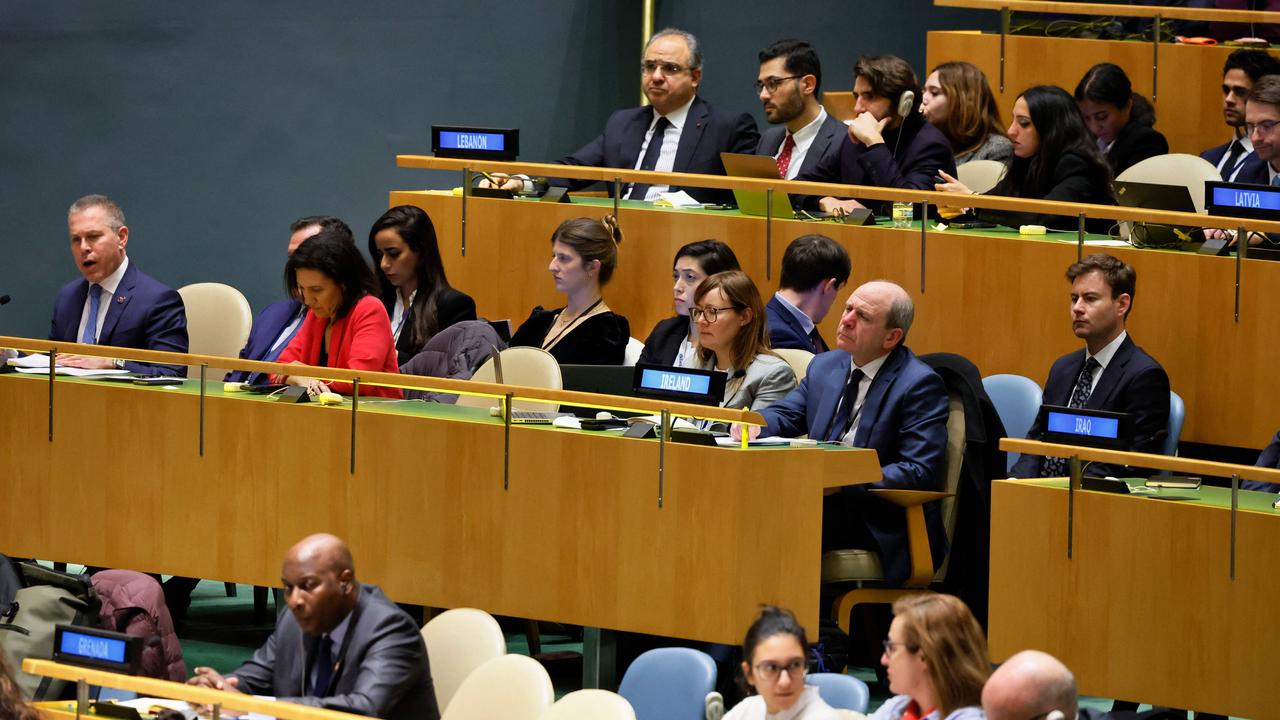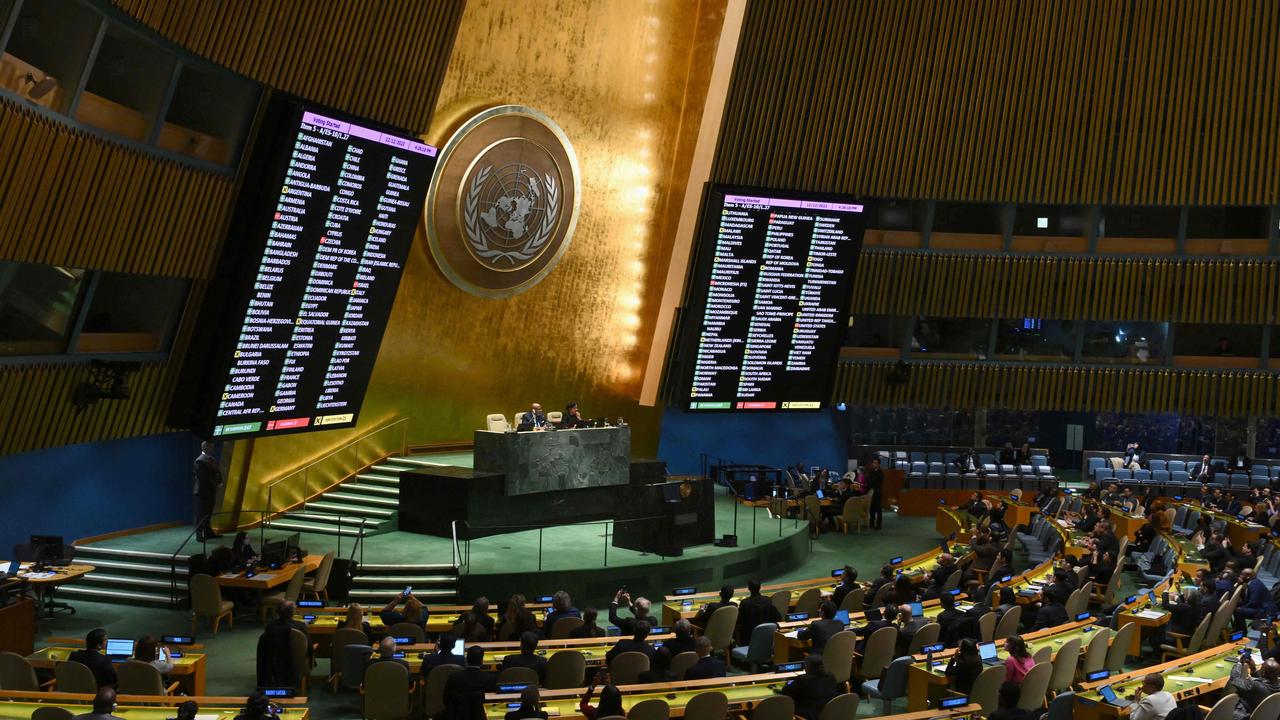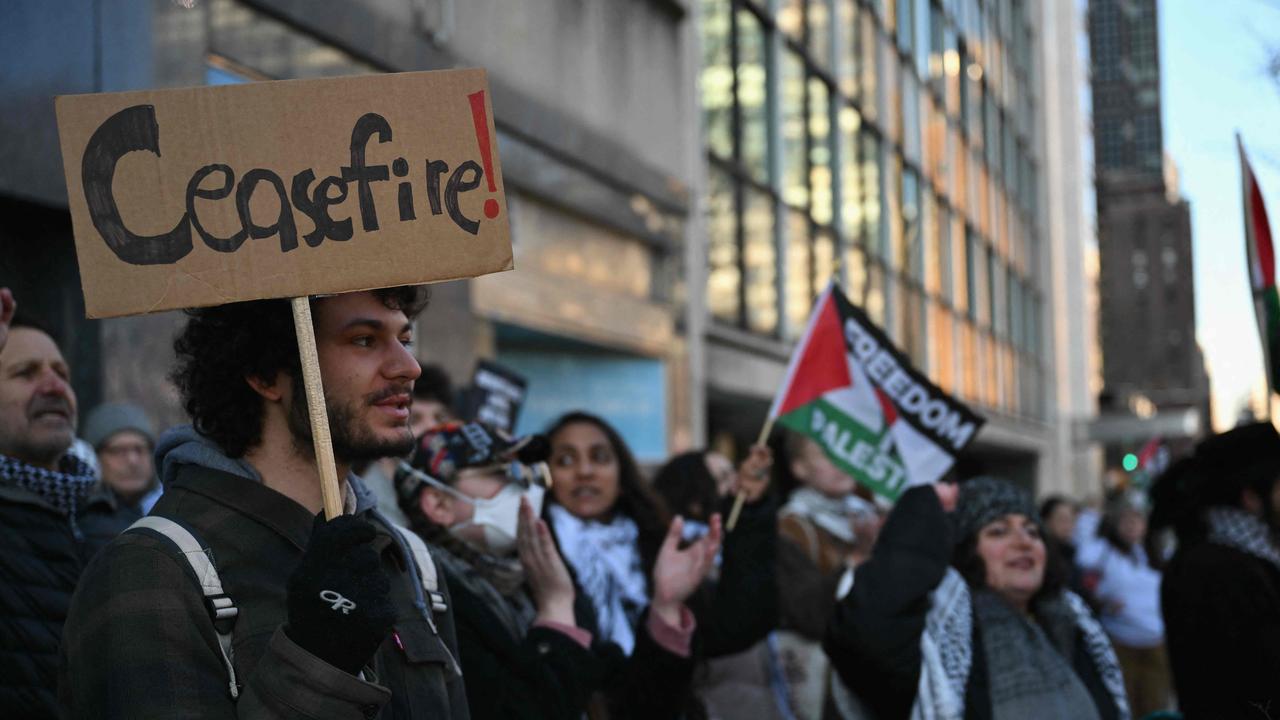United Nations calls for humanitarian ceasefire in Gaza
The United Nations General Assembly has voted overwhelmingly in support of a resolution calling for a humanitarian ceasefire between Israel and Palestine that includes releasing all hostages

READING LEVEL: RED
The United Nations (UN) General Assembly has voted to demand a humanitarian ceasefire in Gaza in a strong show of global support for ending the Israel-Hamas war.
While the UN’s call to end the deadly war is not legally binding, it has sent a strong message of opposition to further fighting.
The vote in the 193-member world body was 153 in favour of the ceasefire, 10 against and 23 abstentions. The United States (US) and Israel voted against the resolution, as did Austria, Czechia, Guatemala, Liberia, Micronesia, Nauru, Papua New Guinea and Paraguay.
The ceasefire resolution called for a suspension of fighting and for all hostages to be released.
On October 27 the General Assembly voted in favour of a resolution that called for a “humanitarian truce leading to a cessation of hostilities,” or a pause in fighting that could lead to the beginning of peace talks between Israel and Hamas*, the nationalist group that controls Palestine.
The December 12 support for a ceasefire resolution was even higher than that of the October 27 resolution.
The vote showed the growing isolation of the US and Israel as Palestinian civilian casualties have soared.

HOW IT HAPPENED
The US had vetoed a resolution demanding a humanitarian ceasefire made in the UN Security Council on Friday. The US was the only country in the 15 member council to vote against the resolution, while the United Kingdom (UK) abstained. If that resolution had passed, it would have been legally binding.
Shortly after, Arab and Islamic nations called for an emergency session of the 193-member General Assembly to vote on a resolution making the same demand.
Unlike Security Council resolutions, General Assembly resolutions are not legally binding. But the assembly’s messages “are also very important” and reflect world opinion, UN spokeswoman Stephane Dujarric said.
THE ROLE OF THE US
The General Assembly vote reflected the growing isolation of the US as it refused to join demands for a ceasefire. The US is seen as the only country capable of persuading Israel to accept a ceasefire as its closest ally and biggest supplier of weapons.
In tougher language than usual, President Joe Biden warned before the vote that Israel was losing international support because of its “indiscriminate bombing” of Gaza.
“I think it will send a message to Washington and to others,” the Palestinian ambassador to the UN Riyad Mansour told reporters before the vote.
He said a demand from the UN, whether it’s the Security Council or the General Assembly, should be seen as binding.
“And Israel has to abide by it, and those who are shielding and protecting Israel until now should also look at it this way, and therefore act accordingly,” Mansour said.

AIM OF THE CEASEFIRE RESOLUTION
The resolution expressed “grave concern over the catastrophic humanitarian situation in the Gaza Strip and the suffering of the Palestinian civilian population,” and said that Palestinians and Israelis must be protected in accordance with international humanitarian law.
It also demanded that all parties comply with international humanitarian law, “notably with regard to the protection of civilians,” and called for “the immediate and unconditional release of all hostages, as well as ensuring humanitarian access.”
The resolution made no mention of Hamas, whose militants killed about 1200 people and abducted about 240 in the surprise attack inside Israel on October 7 that started the war.
The US proposed adding an amendment to the resolution stating the assembly “unequivocally rejects and condemns the heinous terrorist attacks by Hamas.”

A second amendment proposed by Austria would have added that the hostages were “held by Hamas and other groups” and should be released “immediately.”
But both amendments were voted down.
IMPACT OF THE WAR
The war has caused much of northern Gaza to be destroyed. More than 18,000 Palestinians have been killed so far, according to the Hamas-run health ministry, with 70 per cent of them reportedly children and women. The ministry said more than 80 per cent of Gaza’s population of 2.3 million have been forced to flee their homes.
POLL
GLOSSARY
- ceasefire: a temporary pause in fighting applied to a whole geographical area in order to open up communication between warring parties
- abstentions: when a party decides not to vote on an issue
- Hamas: a nationalist group, dedicated to establishing an independent Islamic state in Palestine, including via terrorism, that controls the Gaza Strip, the Palestinian section of the Mediterranean coast
- humanitarian truce: a pause in fighting similar to a ceasefire but not as official and not applied to a whole geographical area
- cessation of hostilities: when one or more warring parties announce plans to suspend fighting, considered more formal than a truce or but not as binding as a ceasefire
- Security Council: a UN council made up of 15 member countries and set up to ensure international peace and security
- General Assembly: the main policymaking council within the UN
- indiscriminate: done at random or without careful judgement
- international humanitarian law: a set of rules that seek to limit the effects of armed conflict for humanitarian reasons
- unequivocally: in a way that leaves no doubt
EXTRA READING
What is the Israel and Palestine conflict?
Ceasefire on a wing and a prayer
Australian boy, 10, writes of his ‘terrifying’ time in war zone
QUICK QUIZ
1. What resolution did the UN General Assembly pass at its December 12 meeting?
2. Which countries voted against the resolution?
3. Why did the General Assembly vote on this resolution?
4. What role has the US played in the conflict between Israel and Hamas?
5. What is one demand that has been made as part of the ceasefire resolution?
LISTEN TO THIS STORY
CLASSROOM ACTIVITIES
1. Do you agree?
“Why is Kids News covering this story? It’s not appropriate!”
Do you agree or disagree with this? Write a very convincing paragraph explaining your opinions.
Time: allow at least 20 minutes to complete this activity
Curriculum Links: English, History, Civics and Citizenship
2. Extension
The vote on a ceasefire had 23 abstentions. Do you know what an abstention is? If you don’t, write down what you think it means. Use your research skills to check your answer. Then, think about the reasons why countries might have decided to vote this way on the resolution. Write down as many reasons that you can think of.
Time: allow at least 20 minutes to complete this activity
Curriculum Links: English, History, Civics and Citizenship
VCOP ACTIVITY
BAB it!
Show you have read and understood the article by writing three sentences using the connectives “because’’, “and”, and “but” (BAB). Your sentences can share different facts or opinions, or the same ones but written about in different ways.

